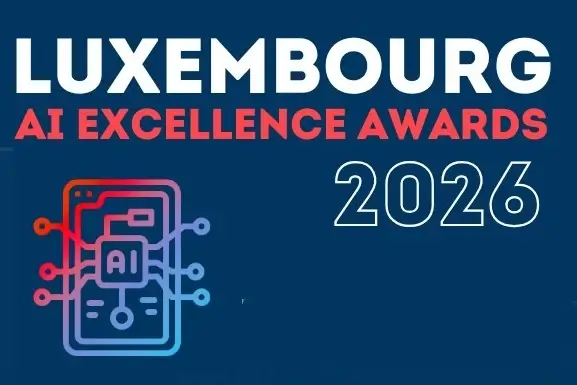

How AI is driving innovation in digital health
What are the secrets to success for AI-powered healthcare solutions? We spoke with Jan Beger, Global Head of AI Advocacy at GE HealthCare, to find out.
 Lena Mårtensson
Lena Mårtensson
With ageing populations, a surge in chronic illnesses, and a global shortfall of healthcare professionals, health systems around the world are facing immense pressure. “We must use technologies such as artificial intelligence to reduce repetitive, mundane tasks so that healthcare professionals can focus on what matters most: taking care of patients,” says Jan Beger.
As Global Head of AI Advocacy at GE HealthCare – a global medtech and digital health innovator – Mr Beger’s mission is to reframe AI from a perceived threat into a powerful enabler of transformation across the sector.
We’re now entering a new era, with technologies capable of much more holistic, far-reaching impact.
Jan Beger, GE HealthCare
Over the past 15 years, AI has become firmly embedded in healthtech, particularly in radiology. “Decision-support tools in radiology primarily rely on computer vision,” Mr Beger explains. “These tools often use so-called narrow AI models that have been trained to detect one specific condition and alert the radiologist when needed. But we’re now entering a new era, with technologies capable of much more holistic, far-reaching impact.”
Foundation models: Towards a more complete view of patient data
At the forefront of this shift are foundation models – AI neural networks trained on vast volumes of raw data, enabling them to be applied across a wide array of use cases.
“Radiologists don’t look at images in isolation,” says Mr Beger. “They interpret them in context, drawing on lab results, patient history and other clinical data. Foundation models have the ability to do something similar – ingesting diverse data types and reasoning across all of them. It brings us closer to AI that can operate more like a clinician. That’s truly exciting.”
Making sense of multimodal data
Healthcare, unlike sectors such as finance or aviation that mainly rely on structured and often numerical data, must handle a vast array of data types ranging from structured lab results and diagnostic images to free-text clinical notes and even handwritten observations. “This diversity presents a challenge, but also a major opportunity. With the latest generation of AI technologies, we can leverage and make meaning out of multimodal patient data. It’s a gamechanger.”
With the latest generation of AI technologies, we can leverage and make meaning out of multimodal patient data. It’s a gamechanger.
Jan Beger, GE HealthCare
He also highlights that artificial intelligence has a role to play in bridging the communication gap between clinicians and patients. “Medical reports can be overwhelming. AI can help translate jargon into clear, patient-friendly language, even responding in an empathetic way. This could help patients become better-informed participants in their own health journey.”
A wave of opportunities in healthtech
These advances are creating a wave of opportunity, not just in terms of new AI-driven health products, but also for enhancing internal business operations.
“At GE HealthCare, we’re exploring where AI can bring meaningful value across the organisation,” says Mr Beger. “Artificial intelligence will influence many areas of our work, and over time, it will support employees in various functions throughout the company. Every company should begin this journey, and if you haven’t already, start tomorrow. There’s no time to waste.”
Every company should begin this journey, and if you haven’t already, start tomorrow. There’s no time to waste.
Jan Beger, GE HealthCare
Of course, the path is not without its challenges. “Using cutting-edge AI is relatively expensive and requires investment,” Mr Beger cautions. “And we are operating in a highly regulated industry, where getting approval for AI-enabled medical devices is no small feat. Companies should carefully consider the risks of using off-the-shelf generative AI tools like ChatGPT or Gemini. Without proper safeguards, relying on these solutions could inadvertently expose sensitive information or intellectual property to external providers.”
Keeping pace is another concern, with major AI breakthroughs happening weekly. “Today’s latest research might be outdated in six months’ time. This makes choosing the right technology tricky. Smaller companies may want to consider partnerships rather than trying to build their own models from scratch.”
Three golden rules for successful AI in healthcare
Despite the complexities, Mr Beger believes the rewards are well worth it – if approached with the right mindset. He shares three key success factors that companies should keep in mind:
- Make sure your solution solves a real clinical problem. “Over the past 20 years, I have seen many startups building amazing technology – without any market fit. Start by identifying a genuine clinical challenge. And to do that, you need to be working closely with hospitals, clinicians and patients.”
- New AI solutions must be deeply embedded into existing workflows. “Healthcare professionals are already overwhelmed with admin. Introducing yet another standalone application or system with a different user interface requiring a separate login will just not work. Your solution needs to integrate seamlessly into the software they already use – ideally with no extra clicks.”
- Focus on trust and adoption. “Many people still mainly view AI with suspicion. Healthcare staff worry about losing their jobs, and patients fear a cold, impersonal care. We must build trust by demonstrating value and ensuring that users have the right level of AI literacy to use those technologies responsibly in day-to-day healthcare.”
Putting the human back into healthcare
While AI opens up exciting business opportunities and creates economic value, Mr Beger sees its greatest promise in restoring the human element of care. “Let AI handle the routine, so that healthcare professionals can focus on delivering the extraordinary,” he says. “We need to bring the human touch back to healthcare.”







